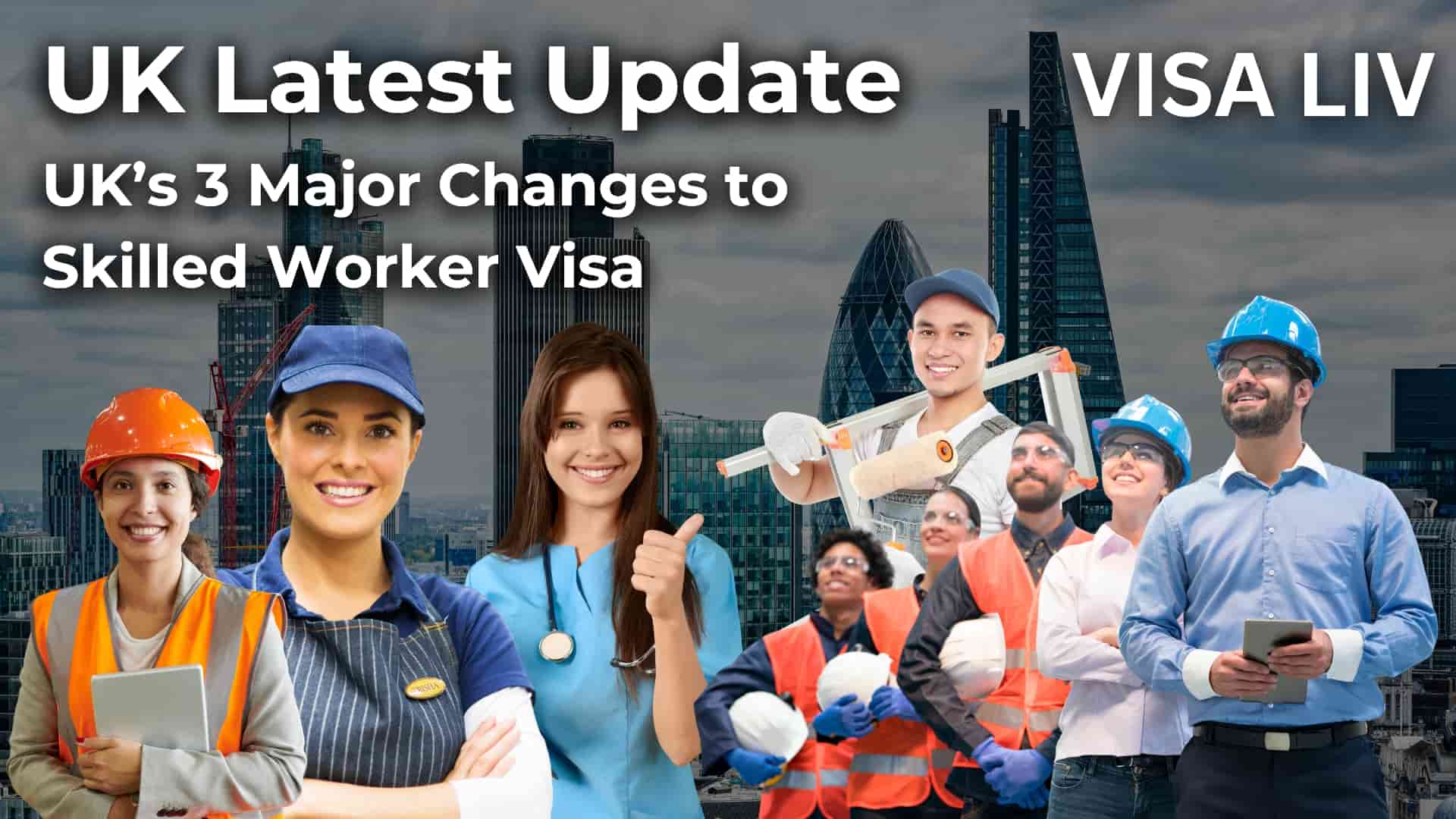The UK has always been a prime destination for international workers seeking employment, offering a wealth of opportunities across various sectors. The UK’s Skilled Worker Visa, a key entry route for foreign professionals, has recently undergone significant changes. These updates aim to tighten immigration controls while ensuring that the country continues to attract high-skilled workers where needed most. If you are considering a job in the UK or are an employer looking to hire international talent, it is important to understand these updates.
Here are the three major changes to the Skilled Worker Visa in the UK, along with their implications.
- Increased Minimum Salary Threshold
The UK government has raised the minimum salary requirement for Skilled Worker Visa applicants. Previously, the minimum salary stood at £25,600 per year, but recent changes have pushed this threshold higher, depending on the industry and specific job roles.
This increase aims to ensure that the UK remains competitive in attracting high-quality talent while safeguarding local jobs for resident workers. As a result, companies looking to hire from outside the UK need to adjust their salary packages to meet these new criteria.
For many applicants, especially those in junior roles, this new threshold may pose a challenge. However, industries in demand, such as healthcare, IT, and engineering, may still find it easier to secure visas for overseas workers due to sector-specific thresholds. If your occupation is on the Shortage Occupation List, you might be eligible for a lower salary requirement, which leads us to the next significant change.
- Updated Shortage Occupation List
The UK regularly updates its Shortage Occupation List (SOL) to reflect the jobs where there is a persistent lack of resident workers. These roles are prioritized for foreign applicants, offering them a more streamlined visa application process and sometimes reduced salary thresholds.
With the most recent update, several key professions have been added, while some have been removed. The focus remains on industries like:
– Healthcare and Nursing: As the NHS continues to face staffing shortages, healthcare professionals are in high demand.
– IT and Technology: With a boom in digital infrastructure, IT professionals, software developers, and cybersecurity experts are increasingly needed.
– Engineering: Civil, mechanical, and electrical engineers continue to make up a significant portion of the SOL, given the UK’s ongoing infrastructure projects.
For job seekers in these fields, this is an excellent opportunity to secure a Skilled Worker Visa faster and with fewer hurdles. It’s advisable to check the Shortage Occupation List for the most up-to-date roles eligible for priority processing.
- Stricter Sponsorship Requirements for Employers
Employers who wish to sponsor foreign workers must now meet stricter compliance standards. The changes focus on ensuring that businesses genuinely need overseas workers and are not using the visa route to bypass hiring local talent. This includes:
– Enhanced documentation: Companies must provide more detailed evidence showing why a foreign worker is necessary for the role.
– Increased monitoring: Sponsors will be subject to more frequent audits by the UK Home Office to ensure compliance with visa regulations.
– Higher accountability: Employers may face penalties or suspension of sponsorship privileges if they fail to comply with these stricter standards.
For businesses, this means an added layer of responsibility. It is more important than ever to stay compliant with visa regulations and keep up-to-date with the changes. If you are a company planning to hire international workers, consider working with immigration experts like VisaLiv to ensure a smooth process.
Additional Implications for Skilled Worker Visa Applicants
These changes will undoubtedly affect how both applicants and employers approach the Skilled Worker Visa. For potential applicants, here’s what you need to consider:
– Check if your job meets the new salary threshold. Depending on the role and sector, the required salary may differ. Ensure your job offer meets the minimum salary requirement before applying.
– Determine if your occupation is on the Shortage Occupation List. If it is, you might be eligible for reduced visa fees and a lower salary threshold, making it easier to obtain your visa.
– Ensure your employer is an approved sponsor. The UK government only allows certain employers to sponsor foreign workers. If you have received a job offer, check if your employer is on the approved sponsor list.
How VisaLiv Can Help You Navigate These Changes
Navigating the complexities of the UK’s Skilled Worker Visa can be overwhelming, especially with these recent updates. That’s where VisaLiv comes in. Whether you’re an applicant or an employer, we’re here to simplify the visa process and offer comprehensive support every step of the way.
For job seekers, we provide:
– Expert guidance on the Skilled Worker Visa requirements.
– Assistance in identifying job opportunities that meet visa criteria.
– Help with preparing and submitting your application, ensuring all requirements are met.
For employers, we offer:
– Compliance support to ensure your sponsorship license meets UK regulations.
– Assistance in finding qualified candidates from abroad.
– Ongoing support to maintain compliance and avoid penalties.
Stay Informed and Take Action
The UK’s immigration rules are constantly evolving, and staying informed is crucial for success. Whether you’re looking to apply for a UK visa or hire skilled workers from abroad, understanding these recent changes will help you plan effectively.
For more details on how the Skilled Worker Visa works and to see if you qualify, visit UK Skilled Worker Visa. If you have any questions visit our website at VisaLiv.com.
At VisaLiv, we’re committed to making your UK visa journey as smooth as possible.

